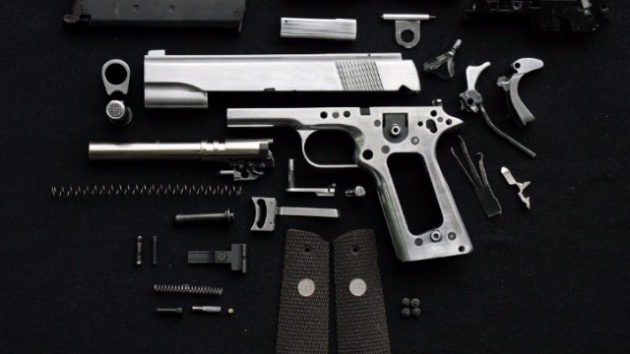Bernie Was Right, and Hillary Wrong, on Gun-Lawsuit Bill by Walter Olson
It came up again at last night’s Democratic debate, so it’s worth repeating: Bernie Sanders and more than 60 other Democrats in Congress were right to support the 2005 Protection of Lawful Commerce in Arms Act (PLCAA), and Hillary Clinton was wrong to oppose it.
Congress had both good practical reason and Constitutional authority to enact PLCAA. Its purpose and effect was to call a halt to the campaign (backed by the administration of Bill Clinton, Hillary’s husband) to launch financially ruinous litigation against firearms makers and dealers — most of them thinly capitalized firms unable to withstand massive legal bills — and apply the resulting leverage to extract promises of gun control without the bother of seeking approval for those measures from a then-skeptical U.S. Congress.
It was a campaign rightly decried as undemocratic even by such figures of the Left as former cabinet secretary Robert Reich. It was also a travesty of legal ethics, employing litigation as a pure weapon; thus then-HUD secretary Andrew Cuomo warned gunmakers that unless they cooperated they’d suffer “death by a thousand cuts”, while then-New York Attorney General Eliot Spitzer reportedly warned Glock: “If you do not sign, your bankruptcy lawyers will be knocking at your door.”
It is not the place of the U.S. Congress to rectify every ill of litigation that may arise in state courts, but the Constitution specifically contemplates that federal lawmakers will oversee the doings of state courts when those courts assert power over transactions and residents of other states.
Thus Article IV, Section 1 grants Congress the power “by general Laws [to] prescribe the …Effect” of state law in other states. These powers are peculiarly relevant when employed to safeguard a Constitutionally specified right that is (purposely) put in jeopardy by tactical abuse of interstate lawsuits.
Despite the claims of some opponents, Congress’s formula for resolving litigation amounted in essence to restoring, not overturning, the traditional common-law bounds of gun liability. It left open a few exceptions for instances where liability might have been found with some warrant in the older common law, as when a gun explodes or is knowingly sold to a person intent on harm.
Otherwise, it codifies the same common-law rule that Cuomo, Clinton et al were hoping to get the courts to abandon: if an otherwise lawful firearm has performed as it was designed and intended to do, its maker and seller are not liable for its misuse.
I’ve written more about PLCAA and its critics here and here.
This post first appeared at Overlawyered.
Walter Olson is a senior fellow at the Cato Institute’s Center for Constitutional Studies.




Leave a Reply
Want to join the discussion?Feel free to contribute!